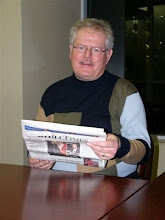Let’s face it, leaks have become as much a part of democracy as those we elect to represent us in legislatures.
In
Since this government is so obsessed with message control, the leak has become its weapon of choice.
A case in point is the negotiations now going on between
The government has not denied there are negotiations. Nor has it really confirmed their existence. All it will say is that there is no agreement between the two countries, leaving us to infer there really are negotiations. And of course the Feds have not denied being involved in the leak.
Why leak rather than formally announce existence of negotiations in Parliament? A formal announcement means you will be held accountable for what you say or promise. A leak that is fuzzy on details means you can say publicly whatever you want later.
If the negotiations don’t go anywhere, you can say they were only exploratory talks, rather than admit failure.
You can also use the leak to test public reaction. This is called trial ballooning in politics.
If people hate the idea of negotiations with the
The media of course love leaks as much as government because they are easier to report than detailed public announcements. They also add an air of mystery and suspense to their coverage. Journalists after all are in the infotainment business.
And of course we prefer to read about leaks instead of formal government announcements because they are less stuffy and free of the weasel words that public officials love so much.
The government and media of course know that we know where this leak came from. And we know that they know that we know. But as long as leaks are so useful to democracy, we can all pretend that we don’t know because leaks serve an important function.
I will be taking two weeks off from this blog for the



